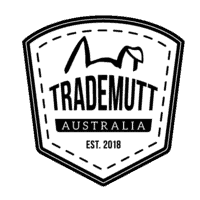Rural Mental Health and TradeMutt

A company taking action.
Regional and remote mental health is a big issue in many countries and none less than in Australia. There is a 20% greater need for services in rural and remote areas and yet access to trained psychologists and psychiatrists falls well below that of those in cities. This is for a range of reasons: politics, facilities, distance and infrastructure to name a few, but the core issue is lowered access for those that need it. Read more about the challenges of remote rural mental health here.
This is where a social enterprise called TradeMutt comes in. Founded three years ago by Ed and his mate Dan, the company has in the last ten months delivered for free, 1700 hours of trained, qualified psychologist support to those in need. This is nearly half a million dollars worth of community support. Ed went on to explain that he thinks it is a big mistake to rely on the government to achieve social change, citing the difficulties that the smoking and road trauma campaigns have faced in changing behaviour through advertising. Ed firmly believes that a ground up conversation around key issues will always be more effective. Corporate Australia seems to agree with him, as many large companies are now supplying their workers with TradeMutt gear. Maybe your company should start a conversation too? Have a chat with TradeMutt.
TradeMutt has not only grown significantly and provided over half a million dollars of free support in three years, but they have made every step of their production process as socially responsible as they can. Whilst manufacturing products both here and overseas, they have been careful to enter partnerships with other social enterprises like “She Rescue” that rehabilitate street girls in Cambodia and teach them employment skills. At every stage of product delivery TradeMutt works deliberately to have a positive impact. Providing work and skills training for prisoners in Queensland and employing disabled workers in as many steps in the production process as possible, including distribution, to shape good social outcomes. I reckon let’s follow this example and do our best to encourage corporate citizens to do some good by incorporating social enterprises in production streams.
Mistakes shape our future just as much as success, and in business, often it’s the mistakes that provide the most learning and growth. When I asked Ed my favorite question “What is the biggest mistake you ever made and what have you learned from it?” his response was immediate. “Back yourself, you are the reason you are successful. Just because a large agency or corporate partner might seem to know more, they will never be as invested as you are.” So as you grow, don’t be intimidated by the big boys who might think they know better. They can never have your passion or knowledge of your business. You have the ability to compete with the big boys, back yourself. Stay in control.
Happily, TradeMutt is kicking goals and looks to be in a period of very strong growth. Having said this, there are limits to what is possible when manufacturing is in a strong post-manufacturing economy like Australia’s. TradeMutt did try to develop a 100% ‘Made in Australia’ T-Shirt, starting with Queensland grown cotton. Turns out, by the time 6 or 7 different manufacturers added cost to the product, the T-Shirt ended up retailing for $90. Surprise, surprise, no one wanted to buy it. The conversation around 100% Australian (or American, English etc) manufacture is one that we need to think carefully about. Ed’s opinion, as well as mine, is that we should instead be looking at ethical employment. Then when we outsource steps in production, we do so in a way that improves the lives of others, rather than reinforcing social disadvantage. Let’s manufacture what we can, let’s also let others have a piece of the pie, but in an ethical and sustainable way. This is a model that’s good for everyone. What do you reckon?
In Australia:
To access free qualified mental health support through TIACS, call 0488 846 988.
Lifeline 131114
Beyond Blue 1300 22 4636
In Emergencies, always call 000